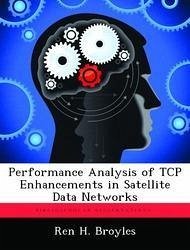Like the rest of society, the armed forces are increasingly reliant on technology to accomplish their missions. Often, however, technology is largely useless without the appropriate information to direct the machines when, where, and how to act. Rapid and reliable information delivery, therefore, is critically important to modern combat and training operations. This thesis examines two proposed enhancements to the well-known Transport Control Protocol (TCP) in the presence of noisy communication links. The Multiple Pipes Protocol (MPP) is an application-level adaptation of the standard TCP protocol where several TCP links cooperate to transfer data. The Space Communication Protocol Standard - Transport Protocol (SCPS-TP) modifies TCP to optimize performance in a satellite environment. While SCPS-TP has inherent advantages that allow it to deliver data more rapidly than the MPP, the protocol is largely incompatible with legacy TCP systems and requires changes to the TCP specification. This research attempts to determine the level of improvement offered by SCPS-TP to help determine if migration to the protocol is appropriate. It was determined that as the percent of corrupted packets reaches 5%, the MPP can take over five times longer than SCPS-TP to deliver data. At high error rates (1% corrupted packets and above), SCPS-TP's advantage is primarily caused by the MPP's use of congestion control algorithms. The lack of congestion control, however, limits the systems in which SCPS-TP can be effectively used.
Hinweis: Dieser Artikel kann nur an eine deutsche Lieferadresse ausgeliefert werden.
Hinweis: Dieser Artikel kann nur an eine deutsche Lieferadresse ausgeliefert werden.








